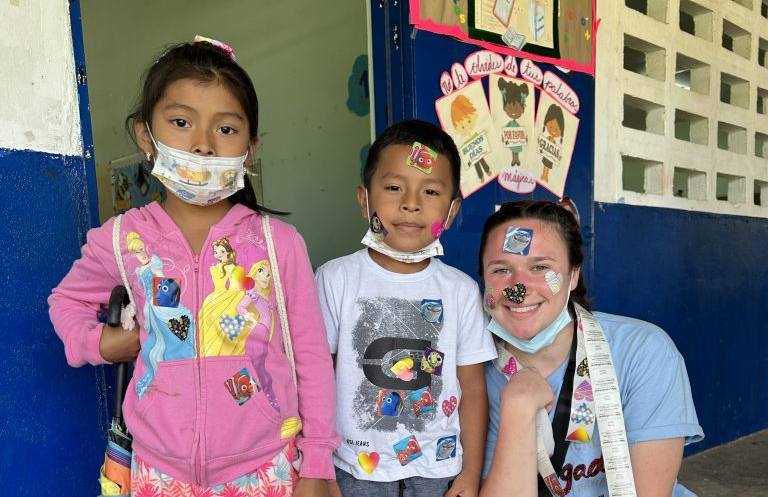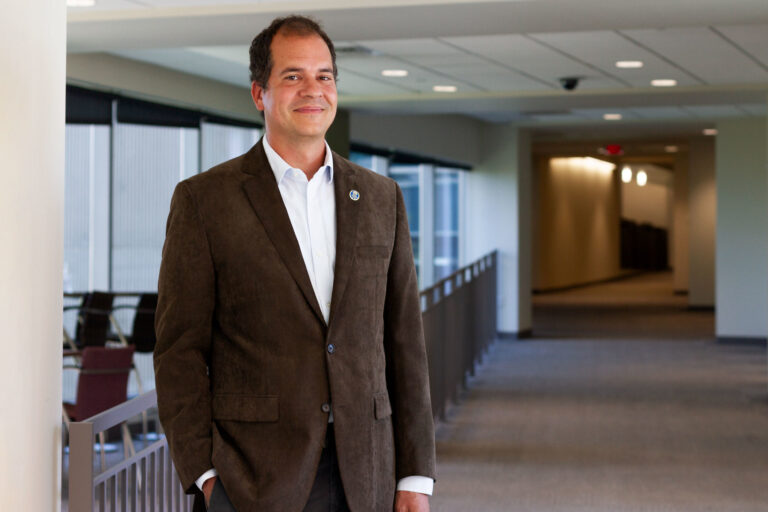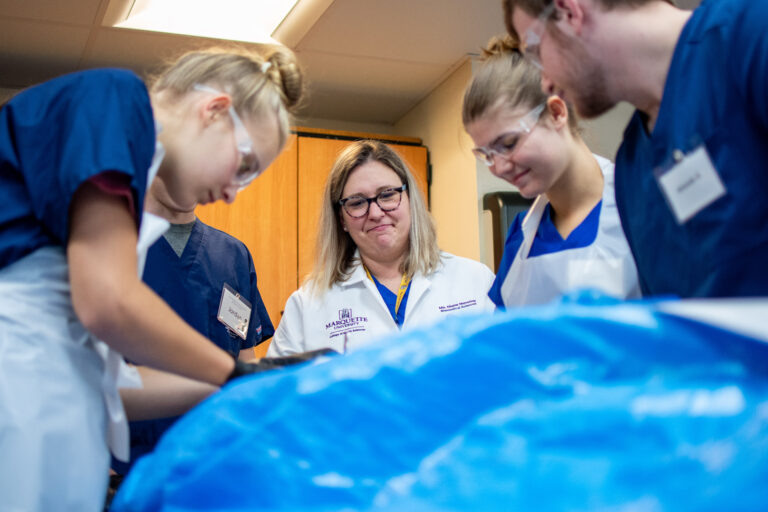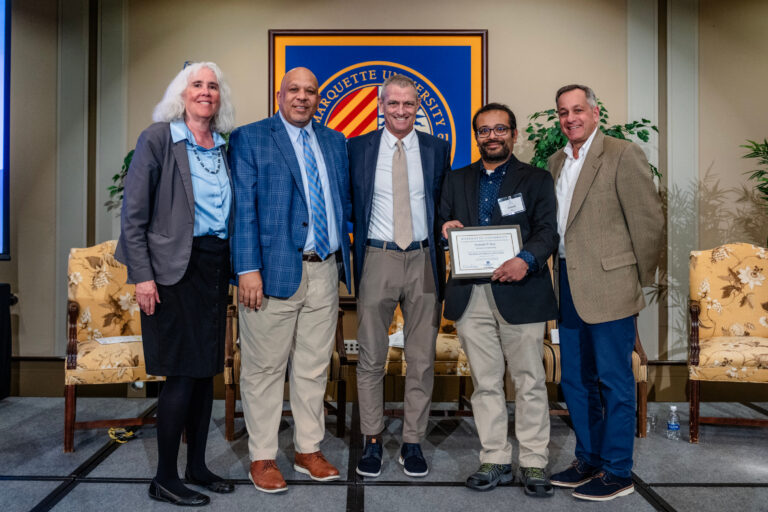Global Brigades has been a signature program for students in the College of Health Sciences since its inception at Marquette in 2003; in January, yet another cohort made their way to Panama to assist local communities.
The Global Brigades organization aims to promote sustainable development in rural Central America through a wholistic model organized around development of sustainable health systems, of water and sanitation infrastructure, and of economic systems. Development of sustainable health systems consists of medical brigades, dental brigades, and community and global health squads.
Last month, biomedical sciences senior Maddy Morrissey embarked on a medical brigade to Panama with her classmates and participated in a short Q&A about her experience.
What motivated you to join Global Brigades and embark on this year’s trip?
I have been a part of Global Brigades since my freshman year, and I was motivated to travel on this year’s brigade because I am passionate about both service and medicine. Global Brigades is an organization that uniquely houses those passions. What kept me coming back for the next three years were the sustainability and community aspects that I was exposed to on my first brigade. It’s evident that each volunteer has the motivation to work with rural communities and to promote independent development through a holistic model. The warm feelings, laughter with friends, and watching strangers morph into family were all positive side effects the brigade experience. I have had the honor of being part of Global Medical Brigades for four years at Marquette because of the mission of Global Brigades and the community that Marquette fosters.
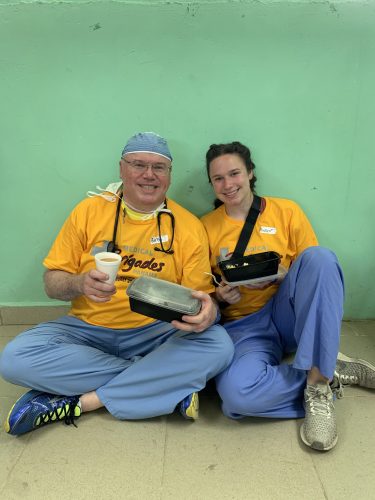
What were you expecting out of this trip compared with what you learned and experienced previously?
Since circumstances are always changing I’ve learned to be fluid these situations and go in with as low expectations as possible. Taking a situation as it comes helps me appreciate each moment and find light in a given situation, whether it be tires popping on the bus, getting lost in the mountains on the way to a community, or comforting an ill volunteer.
I have also learned that there is an art to medicine in addition to the science that cannot be contained or taught from a textbook or classroom. There are necessary elements of warmth, understanding, compassion, and empathy that are vitally important when providing care. Since we do not have the resources on brigade that a hospital at home would have, it has shown me that the element of care can have a as great an impact as those of a scalpel or of a medication. Global Brigades embodies Marquette’s core tenet of cura personalis, or care for the whole person. Through its holistic model and interdisciplinary approach, Global Brigades collaborates with local communities to empower them to attain development that is permanent.
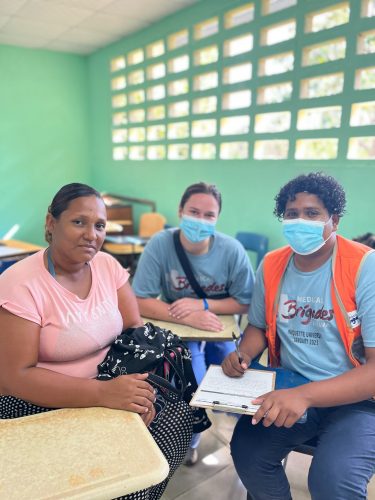
What was the most rewarding part of your trip?
The most rewarding part of my most recent brigade was seeing and hearing how our clinic and its volunteers positively impacted community members. For example, a mother who had a stillbirth in the past was brought to tears when one of our physicians (and also my dad, Dr. William Morrissey) confirmed a fetal heartbeat in our makeshift clinic. It would be hard to not be moved in a moment like that. But even the joy of a parent when told their children are healthy after their first physical exam. It is a privilege to experience moments like those. It is also an experience that inspires me to prepare myself properly so that when I cross paths with a person as a health care provider in the future I am in the best position to help them
What would you tell future students about going on a brigade and what they would gain from the experience?
There is a kind of magic that happens on brigade that can solidify or even change one’s goal in life and how you choose to go about achieving them. I would advise any brigader, new or returning, that there is much to be learned from the people around you — community members, staff, health care practitioners and even fellow student volunteers.
On a brigade, there are also times in which you must be vulnerable and put yourself out there – whether by practicing Spanish, taking vital signs, and talking to strangers. But one of the greatest things I’ve enjoyed from each brigade is seeing everyone come as strangers and leave as family.
